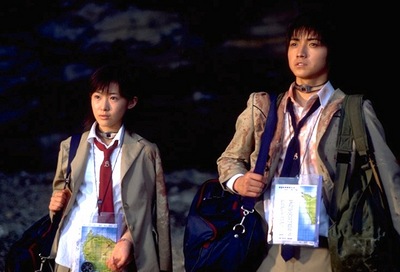Apocalypto: Epic in a real jungle
I truly enjoy Mel Gibson’s work as a director. His films, whether he stars in them or not, always reflect a passion and heart like few others. His best work these days, more and more, seems to be coming from behind the camera. It seems to me he really makes the movies for himself first and second for everybody else, no test audience previews to influence the final product.
“Apocalypto” is a film about the demise of the Mayan civilization. It tells the story of Jaguar Paw, whose small village is attacked by a group of hunters from the nearby metropolis, their job literally being to pillage small defenseless groups while looking for “volunteers” for their “most dangerous game”: the sacrificing rituals that the city’s leaders use to keep the masses entertained.






